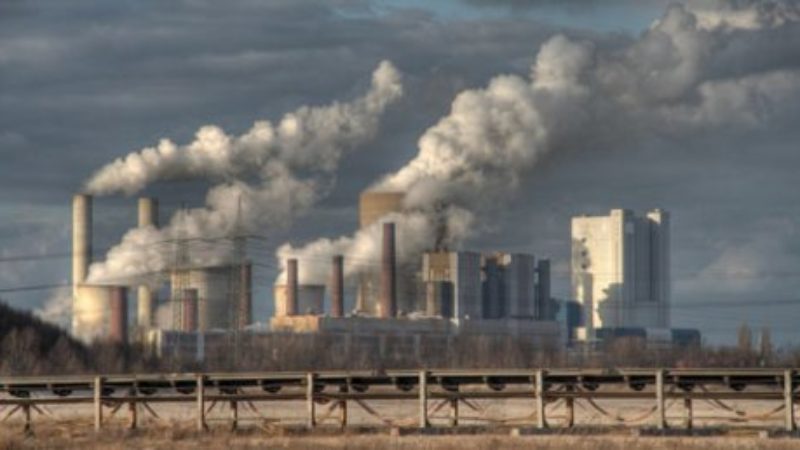
The Financial Times reports that a coalition row over energy policy has “burst back into the open” as Energy and Climate Change Secretary, Ed Davey, announced yesterday that he would “defy the chancellor” and set a target for how much carbon dioxide electricity plants should emit by 2030. Labour should isolate the Chancellor and support the Lib Dems.
Including a target to decarbonise the power sector by 2030 in the draft energy bill has become the main demand of environmental groups. But it is also supported by businesses, the select committee and the government’s own advisors. Last year, the EEF manufacturing group said government “should establish a 2030 carbon reduction target for energy supply … [with] the ambition of decarbonising the energy supply in the UK … and [providing] the certainty businesses need to invest in low carbon generation technologies and fuels.”
The Energy and Climate Change Select Committee, which is chaired by Conservative MP, Tim Yeo, published a scathing pre-legislative scrutiny report on the energy bill in July. Along with a series of criticisms and recommendations, it called for the Government to set a “2030 carbon intensity target for the electricity sector” since this would “deliver the most cost effective route to meeting our 2050 climate change targets”.
And, just yesterday, in his first day in the job as Chairman of the advisory Committee on Climate Change, Conservative peer Lord Deben, better known as John Gummer, wrote a letter to Ed Davey endorsing a target on the grounds that it would help bring forward the necessary investments “at least cost to the consumers.” DECC’s own analysis shows that wholesale gas prices will increase by 55 per cent from 2010 to 2020 showing the absurdity of reliance on a ‘dash for gas’.
Renewables and nuclear are also likely to increase energy bills but by nothing like as much. Providing incentives so that Britain can get ahead of the curve on clean energy will do wonders for our economy. The CBI have shown that the UK’s green businesses grew in real terms by 2.3 per cent in 2010/11 contributing a third of overall growth. Worldwide, the sector has increased by a magnitude of six since 2004. And the clock is ticking. The International Energy Agency has found that every delayed $1 of low carbon investment in the energy sector before 2020 will cost an additional $4.30 after that time.
Having failed to make any mention of a 2030 target in a lengthy op ed explaining his position on Wednesday, Ed Davey yesterday clarified his position and said , “We are currently considering a 2030 electricity decarbonisation target”. This puts him on a collision course with the Chancellor who wrote to Davey in July calling for “agreement that we will not set any further decarbonisation or deployment targets beyond those we already have, for example 2030 targets for electricity emissions or renewable deployment.”
At Lib Dem conference in 10 days time, Chief Secretary Danny Alexander will propose a motion calling for the coalition to establish “a target range of 50–100g of CO2 per kwh for the decarbonisation of power sector by 2030 in addition to existing carbon emission reductions.” Labour should back him.
Not only is the policy in the interest of both businesses and consumers, it makes good political sense as it could precipitate a major defeat for George Osborne. With the precedent for coalition collective responsibility undermined by the row over boundary changes, Lib Dem MPs would find it hard to oppose an amendment to the Energy Bill calling for an explicit 2030 target.
Ed Davey’s team have hinted today that his preferred approach is for the target to be including in a statutory instrument if and when the energy bill passes. But this approach could result in the target getting bogged down by the Treasury. It would be far better for Labour’s energy team to smoke out the Lib Dems and propose an amendment on the face of the bill for an explicit 2030 target.
Will Straw is Associate Director for Globalisation and Climate Change at IPPR



More from LabourList
Key local council elections to watch for clues on our general election chances
Andy Burnham manifesto: Greater Manchester mayor reveals three key election pledges in bid for third term
‘Labour should grasp the chance to secure EU visa deal for young workers’